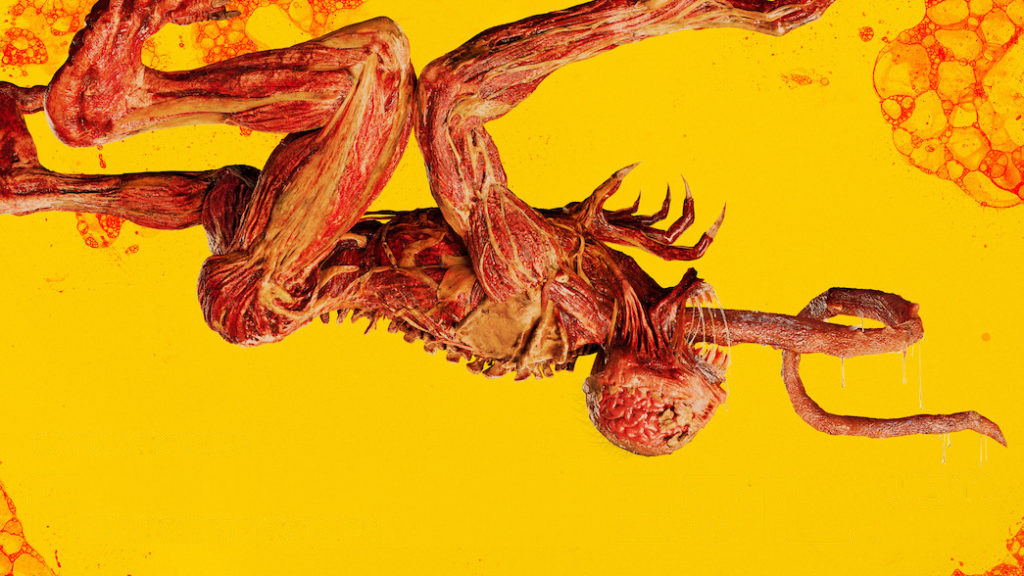Had it been a simple and generic zombie story wrapped in Umbrella Corp branding it might have been fine, but the Resident Evil series on Netflix is inhabited by unlikable characters, contrived YA drama, and a dull overall story where every plot turn is contingent on someone messing up in the stupidest of ways.
Taking place decades after the events of the original games, we see the beginning of the apocalypse in New Raccoon City where Albert Wesker and Umbrella Corp are trying to restart anew. Then many years later Jade, the grown up daughter of Wesker, is learning what makes these “zeroes” tick in a world overrun by them.
As a new fan of the games themselves but having been aware of them for years thanks to the movies and other adjacent media, I went into this new series with some hope mainly because I really liked the cast they put together. This is also in spite of my observation that zombie stories had been overdone and there was no fresh avenue to take it. But from the first episode it seemed apparent that this could have been any generic zombie story, possibly even a script for another sequel to 28 Days Later, but wrapped in Resident Evil branding and references.
The series switches between two time periods: 2022 in New Raccoon City – a planned community built around a rebuilt Umbrella Corporation, and 2036 – 14 years into the apocalypse where a virus has overtaken the globe and humanity is struggling to survive.
That time switching is not a unique story telling gimmick and has been used to great effect elsewhere, especially when one time period informs another. Unfortunately, that very gimmick undermines much of the show as the younger versions of the main characters taint the likeability of the older versions and both story threads really are just not that interesting follow.
MINOR SPOILERS FROM THIS POINT…
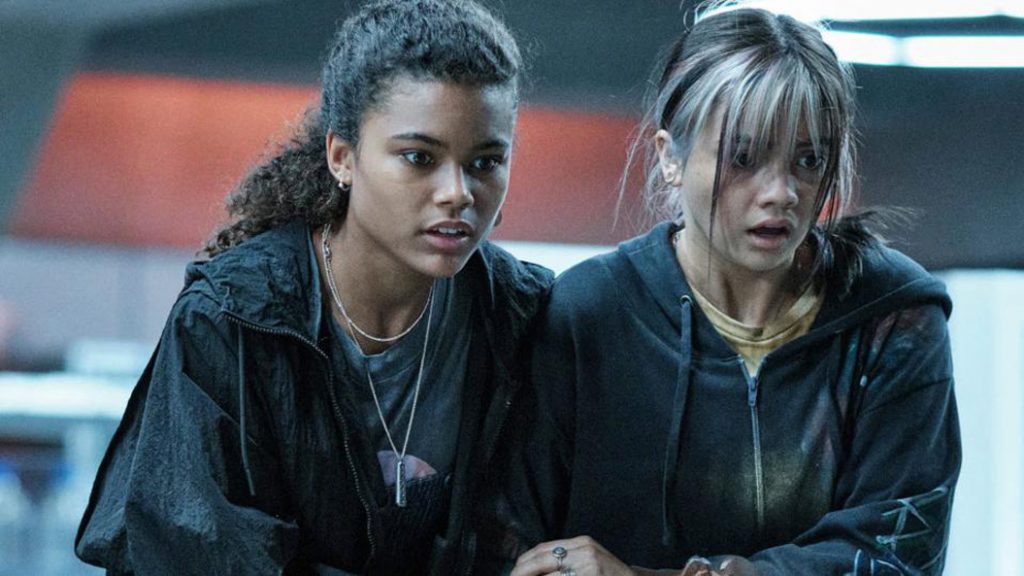
It’s completely unfair when critics use “young adult drama” in the negative because in of itself the premise is not a bad thing. The problem with Resident Evil is that it’s not done in a very convincing or enjoyable manner especially when the motivations are based on two 14-year-old teenage girls who are able to easily break into a highly-secure laboratory to rescue animals from being tested on. It’s also very obvious when older writers are trying too hard to sound young because there are too many contemporary references that come off rather flat or based on memes (literally invoking COVID was also jarring and will not age well).
There is a better and more sincere attempt at creating an apocalyptic world in the 2036 period but even most of that feels generic or lifted from other zombie-based inspirations. Admittedly, there are a few interesting ideas being presented but nothing we haven’t seen elsewhere and they’re not particularly well done here either. And you only remember it’s a “Resident Evil” show when “Umbrella” or “T-Virus” are mentioned. If anything, there are times where I think it’s trying to be more like Westworld than it is Resident Evil with them thinking the formula can be applied here too (the minimalist posters they made for the show sort of add to my theory).
The series uses the original games as background lore, technically making it a sequel to said games. It does its best to reference and utilise many elements that fans have come to love about them including particular iconic monsters and a certain costumed look for a particular character (which unfortunately comes off more as a joke than a cool moment). There’s also a climactic moment in the final episode that sort of harks back to and recognises how batshit crazy the games themselves became over time but ends up being cringey instead of exciting. Yet you could easily remove these specific elements and still tell the same story, that’s how inessential they are in making it “Resident Evil”.
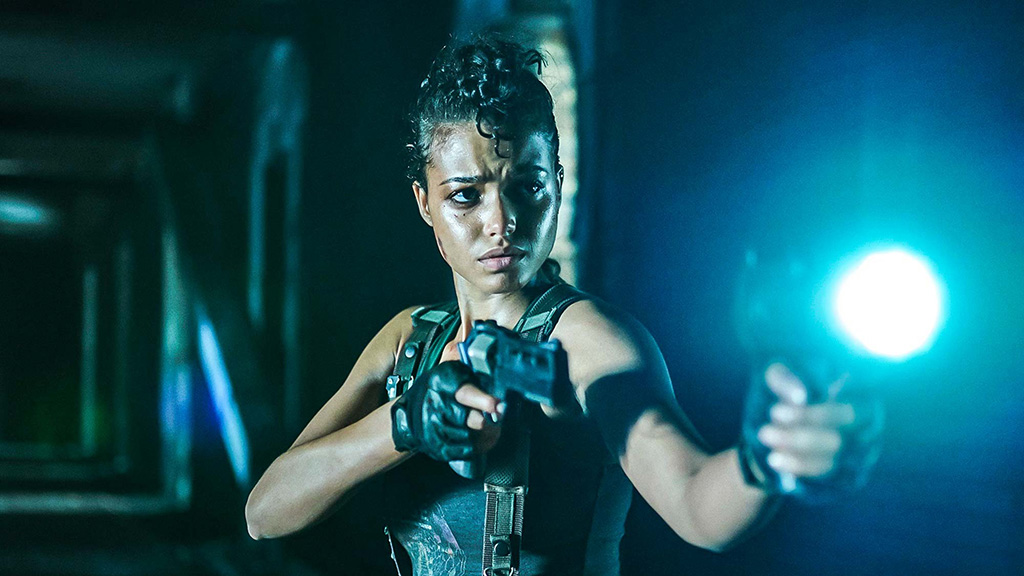
In all fairness, the cast did as best they could with the material they had to work with. Each of them had a lot of potential and cool moments but overall they were let down by the writing. Albert Wesker (Lance Reddick) is very good in playing a different type of Wesker than fans are familiar with (for good reason) and pretty much carries the show. His twin-via-IVF daughters, Jade (Tamara Smart) and Billie (Sienna Agudong) unfortunately don’t come off too well in this show, their headstrong nature comes off as obnoxious instead of resilient making them rather unsympathetic, which then taints more than informs how their older counterparts are viewed. And I’ll reiterate that’s not the actors’ fault but when Billie, who is made to look like Billie Eilish, is then introduced into the show with a Billie Eilish song, then you know the makers of the show are not too concerned with subtly.
With the “twins” there’s at least an attempt at trying to illustrate a “where it went wrong” sort of story between the sisters and I can appreciate that. The character who comes off the worst is Evelyn Marcus (Paola Núñez), CEO of the new Umbrella Corporation and daughter of its founder, who resembles a bad commentary about greedy corporations. It’s all made worse by the “queer coding” and psychopathy and how she drugs her stay-at-home wife just to get her off her back and comply.
My biggest disappointment is the lost potential between the older version of the sisters. I really liked Ella Balinska in the 2019 Charlie’s Angels and was looking forward to seeing her continue her action turn in this show as Jade (and she does really well in those moments and they are entertaining enough). But she’s not particularly interesting or sympathetic in part due to how unlikeable her younger self comes off. Similar with older Billie (Adeline Rudolph) who doesn’t really get much build up to her reveal or really much time to develop (most of it on the shoulders on the “flashback” storyline). Which is a shame because what little time the older two do share on screen together actually works well in isolation and hints at a greater antagonistic showdown between the pair.
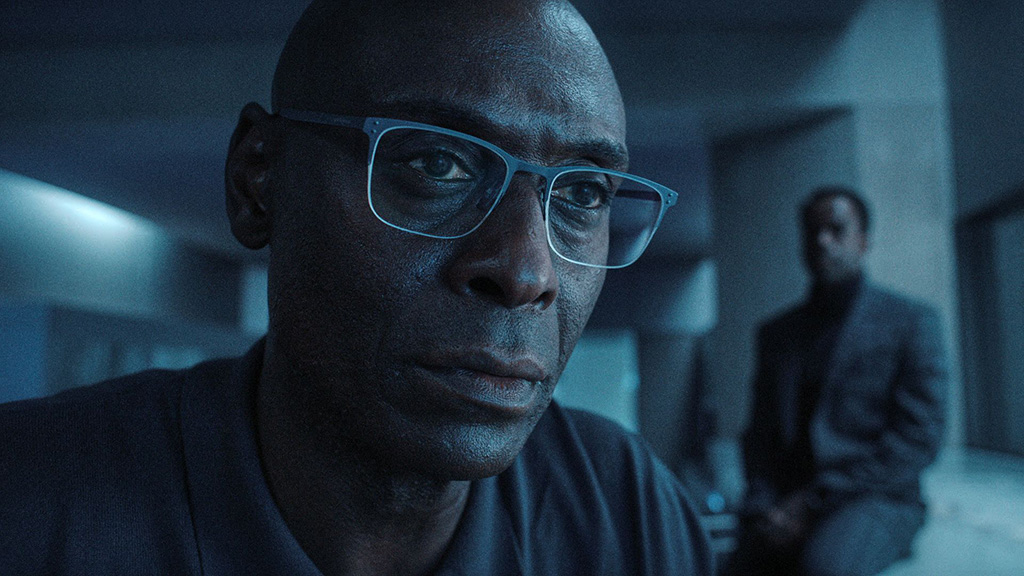
There seem to be two major issues with the writing that lets these characters down. The first is the inability to create organic conflict between any of them. Imagine a paranoid ex-partner who keeps accusing you of cheating out of nowhere. It’s about as rational and out of nowhere as that sounds because characters start bickering about the mildest and even the most nonsensical of issues that don’t feel genuine to the moment. It’s as if the script simply calls for “human drama” and that’s it.
The other problem is that every plot turn is predicated on almost every single one of these main characters being colossal fuck ups. The plot is propelled by actions that are either stupid, arrogant, or simply lack care and forethought and it makes the ensuing scenario feel empty and less exciting.
I don’t normally comment about music as that’s not necessarily my wheelhouse but this is the first time where licensed music used as a soundtrack felt too on-the-nose. The first Suicide Squad movie was a tacky carbon copy of how films like Guardians of the Galaxy made its “needle drops” so popular but in Resident Evil it feels as though they’re trying copy how CW shows use music because “teen drama.” But it’s so jarring and clumsily done and very obvious especially when the lyrics are literally commenting on what just happened instead of conveying the mood. It’s particularly bad when a Dua Lipa song is used in a moment that’s meant to be comical and revelatory but just falls flat.
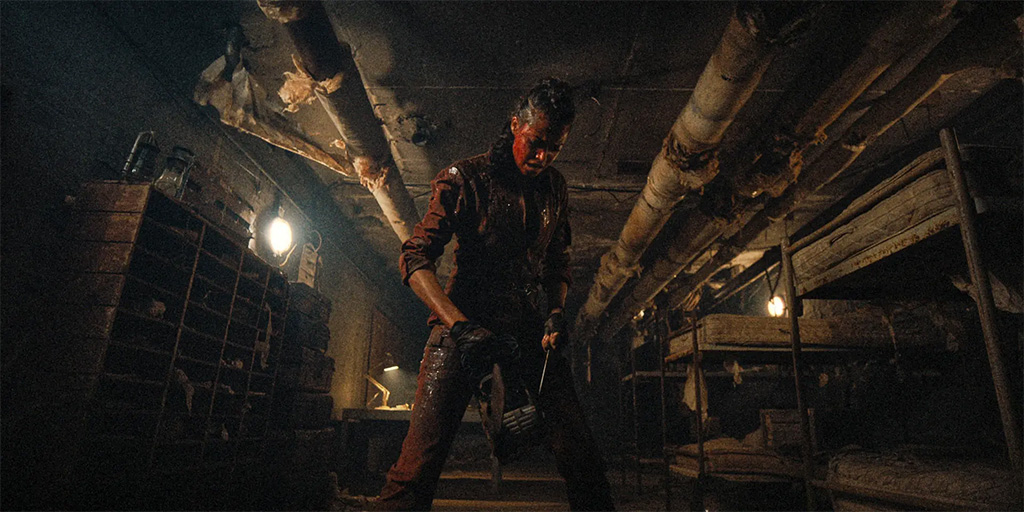
The first episode had promise as it felt like a gritty independent film in its cinematic sensibilities (hence my earlier comparison to 28 Days Later) But as the season progressed, it just looked as though they ran out of money. The camp Umbrella sets up in the finale looks sad and woeful for such a scary major corporation everyone in the future fears, the 2036 Umbrella soldier uniforms look cheap, and the climax was conceptually cool but visually lacking like a fan-film.
Worst still, just like my problem with the Halo series, this is only the first chapter to a larger story. So while there is an attempt to have a climactic chapter ending, it leaves far too many threads open to be a satisfying closer. And as I said previously, not too many writers seem that capable at consistently compelling long-form story telling. It just smacks of a cheap way of getting s second season.
There’s also something amusing about yet another zombie show refusing to call these things “zombies.”
Had Resident Evil on Netflix simply been a generic zombie series done well then I might have found it an enjoyable distraction but instead I was ultimately bored and disappointed by season 1.
All 8 episodes of season 1 of Resident Evil are now streaming on Netflix.
If you enjoyed this review then please consider contributing to my tip jar at: ko-fi.com/oldtrenchy
